|
When Harry Met Ripley....
Thankfully, I have never
needed to use the full appellation “Henry Reymond Fitzwalter
Keating”. On book
jackets and in by-lines and indices “H.R.F.
Keating” seems to suffice, saving
valuable keystrokes, and in person the man himself is more than happy
to be
referred to as “Harry”.
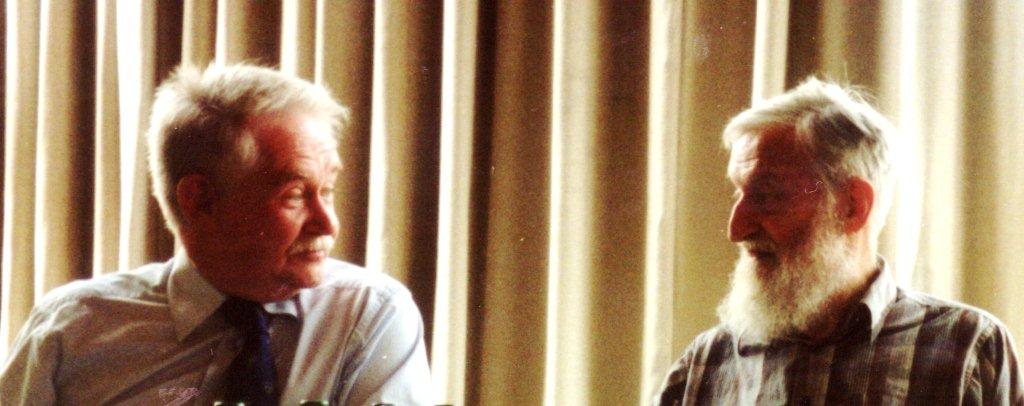
Harry Keating and Mike Ripley not quite eyeball to eyeball in a panel
discussion on plotting a crime novel at Girton
College,
Cambridge,
2007.
He has a name, which once seen in print is
not easily forgotten and I saw the name long before I ever saw, let
alone met,
the man. I saw his
name everywhere in
bookshops and indeed on the covers of books, yet not his
books, for as I was discovering the thrill and diversity of
crime fiction, I found myself following a trail of clues indicating
‘something
interesting in here’ in the form of one- or two-line
recommendations on dust
jackets signed by the (then) mysterious “H.R.F.
Keating” in his capacity as
crime fiction reviewer for The Times.
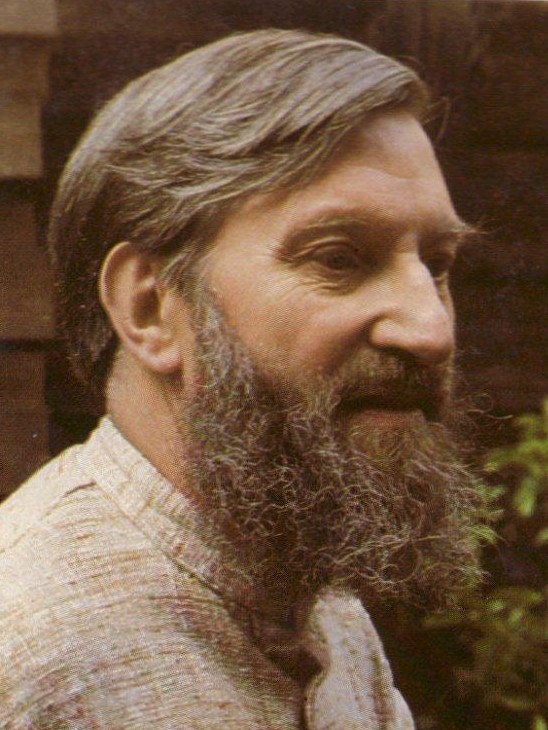
HRFK in 1982.
I never actually read The Times
(the Yorkshire Post
was the journal of record in my youth and we regarded The
Times as dangerously left-wing and, worst of all, southern) but I followed those Keating
recommendations – which would be called
‘blurbs’ today – and found I was rarely
disappointed. For example, he described Lionel Davidson’s The Chelsea Murders as “An
entertainment...A puzzle. A black
comedy. A pleasure through and through.”
He was right on all counts and though I had already
discovered Davidson,
I found myself agreeing with the mysterious Mr Keating and so allowed
him to
direct me towards authors I didn’t know, using him like a
fraudulent psychic would
call upon a spirit guide.
No dodgy table-thumping or displays of
ectoplasm here though, for his suggestions were always solid and
without them I
would never have discovered Frank Parrish’s Fire
In The Barley (“well-conceived, excitingly paced
story”); the wonderful
stylist P.M. Hubbard’s A Thirsty
Evil (“Acquire
the Hubbard taste, it’s richly rewarding”) and the
amazing Anthony Price’s The
Labyrinth Makers (“One of those
books you simultaneously want to finish and long to go on for hours
yet”). There
were certainly many others and then my reading expanded geometrically
when in
1982 I was given that indispensible guide to the genre Whodunit? The editor was,
of course, H.R.F. Keating.
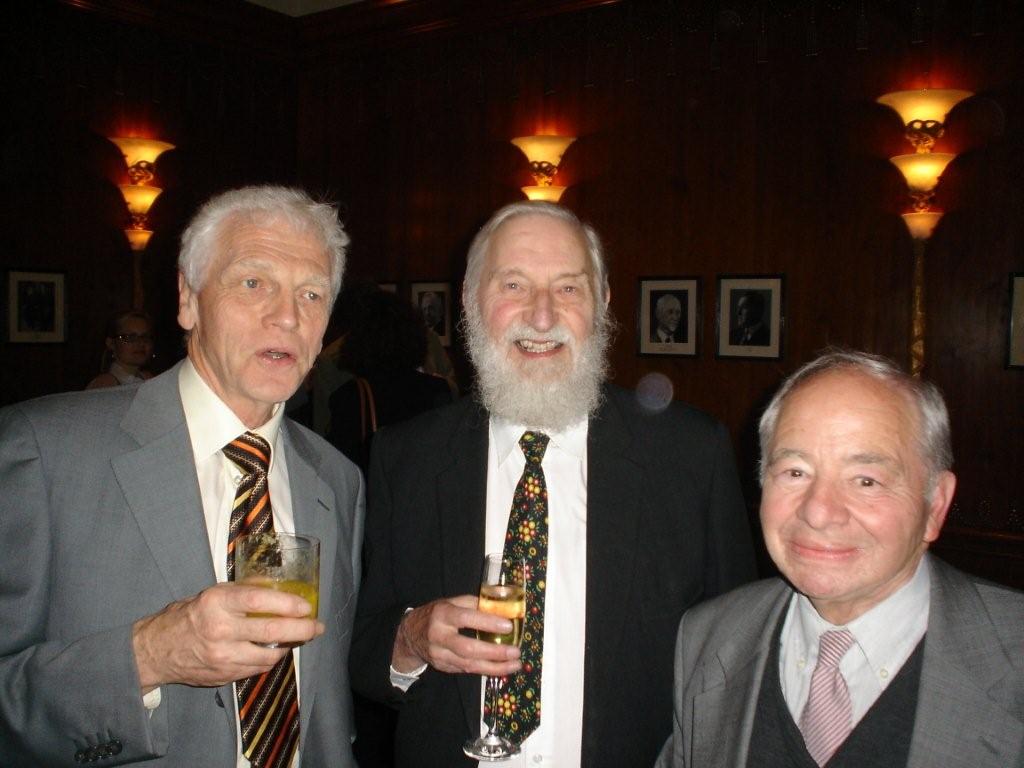
A trio of Diamond Dagger winners: Peter Lovesey, Harry Keating and Colin Dexter. [Picture: Ali Karim]
But by that time I had detected that
‘HRFK’
had written a few books himself and indeed was quite famous for writing
a
series of crime novels with an Indian detective even though he himself
had
travelled no further east than Dover – or so the legend went
– and thus my
first meeting with Inspector Ganesh Ghote, who had actually burst on to
the
crime scene in The
Perfect Murder in 1964.
Meeting with Ghote’s creator recently, in,
ironically, the year of Slumdog
Millionaire, though in his comfortable, book-lined home in
Notting Hill
rather than in Mumbai, Harry is disarmingly open (as he always is)
about the
creative process behind that auspicious debut.
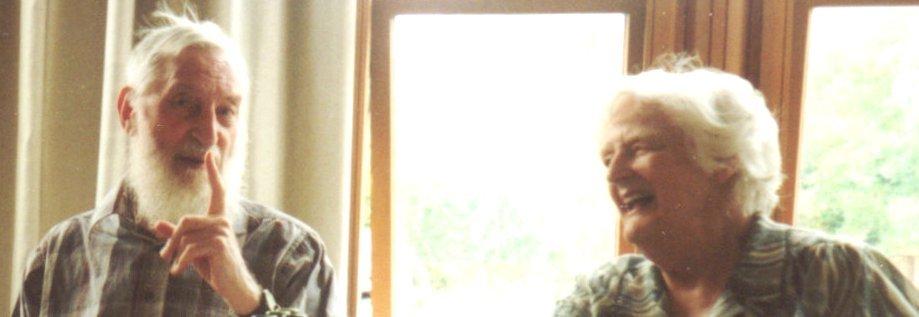
Harry making a point to another past Chairman of the Crime Writers
Association, Catherine Aird.
He had, in fact, had five novels published
BG (Before Ghote), which, according to the reviewers of the day, were
all said
to be witty, lively and thought-provoking, if highly contrived. Some of
the
titles also betrayed a mischievous taste for the surreal, such as Zen
There Was Murder and The Dog It Was That Died, with
one
of the most striking Penguin covers ever.
They were not, however, finding a
publisher in America
and Harry and his agent agreed this was a two-pipe (if not quite three)
problem
which needed to be solved. Perhaps the answer lay in a new, more
exotic, setting and
so, practical as ever, Harry “sat
down with an Atlas and flicked idly through it until I got to Page India”.
The rest, as they say, was history – or at least 26 novels
and goodness knows
how many short stories in the Ghote canon, so far.
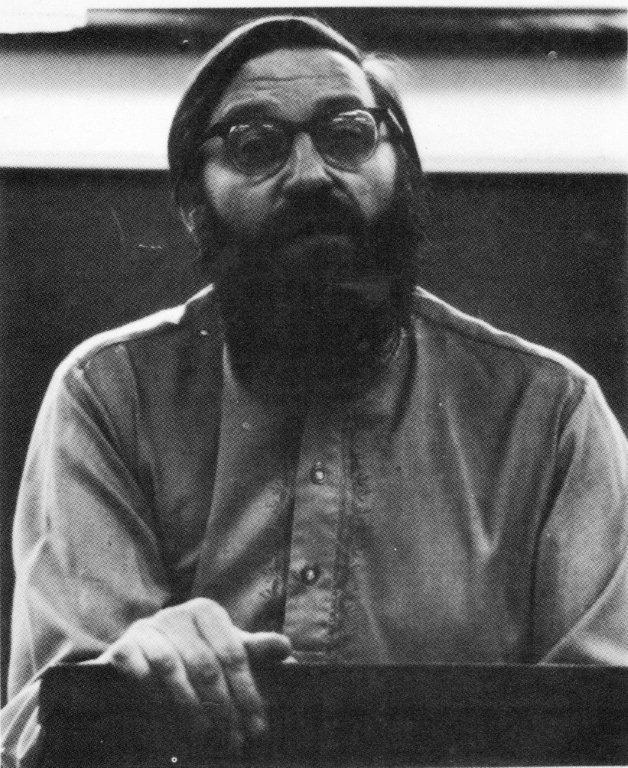
A younger, more
serious, Harry at the podium delivering a lecture.
That initial outing for the unassuming
little Bombay CID
man won Harry the first of his CWA Gold Daggers and also many loyal
fans, not
surprisingly as this was less than 20 years since the formal end of The
Raj and
large numbers of British readers had served in India,
remembering it with affection. What was surprising, or so Harry
modestly
insists was how “astonishingly well” the book was
received in the USA, where it
was reviewed by Anthony Boucher no less, who named it his
‘book of the year’
despite the year being only three or four months old.
Considering that his actual experience of India
was nil Harry must have done his research well, for, as he says with a
smile,
“there were not many complaints” which was quite an
achievement given the large
number of ‘old India
hands’ still around in 1964. Harry did, however, get a letter
of complaint from
a self-styled ‘Guru’ (it was the Sixties after
all), although on closer
inspection this turned out to be an appeal for contributions to the
Guru’s own
personal school of philosophy.
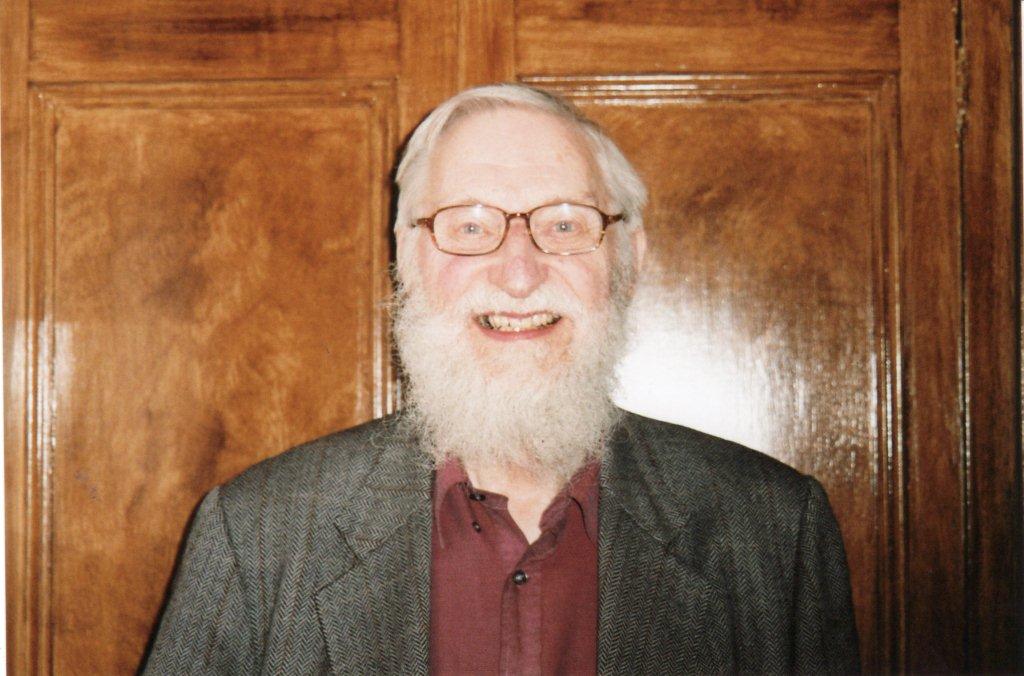
Harry in March 2009.
Ghote, thought Harry, was a good enough
character to pursue for a further two or three books and Inspector Ghote’s Good Crusade and
Inspector
Ghote Caught in Meshes promptly followed and were
received so well that
“it was an obvious choice to stay with him”. So he
did, with a new title almost
annually.
It may seem that Harry was defying the old
maxim that you should write about what you know and he cheerfully
admits that
“it was all going quite nicely without having to face the
actuality” but then
one morning the actuality came calling. It was at the breakfast table
with the morning
post (those were the days!) that Harry opened a letter from Air India,
which
basically said: You’ve been writing
about
India, now come and see it and offered him a ticket,
thankfully as return
one, on one of their flights to Bombay, as it was then. It was an offer
Harry,
in all conscience, could not afford to refuse.
The Ghote books were known and read in India
but still, the prospect of confronting the
“actuality” of a world he had
created in the safety of Notting Hill several thousand miles away, must
have
been daunting if not nerve-wracking. Harry spent the entire Air India
flight there calming his nerves and rehearsing an appropriate speech
for that
dramatic moment when he landed and stepped for the first time on to
Indian
soil. It went, as he recalls, “Something along the lines of
‘One small step for
Inspector Ghote...’” but in reality the speech was
never delivered. As the Air
India jet landed and Harry stepped on to the tarmac of Bombay
airport, his first historic words were: “My God,
it’s hot!”
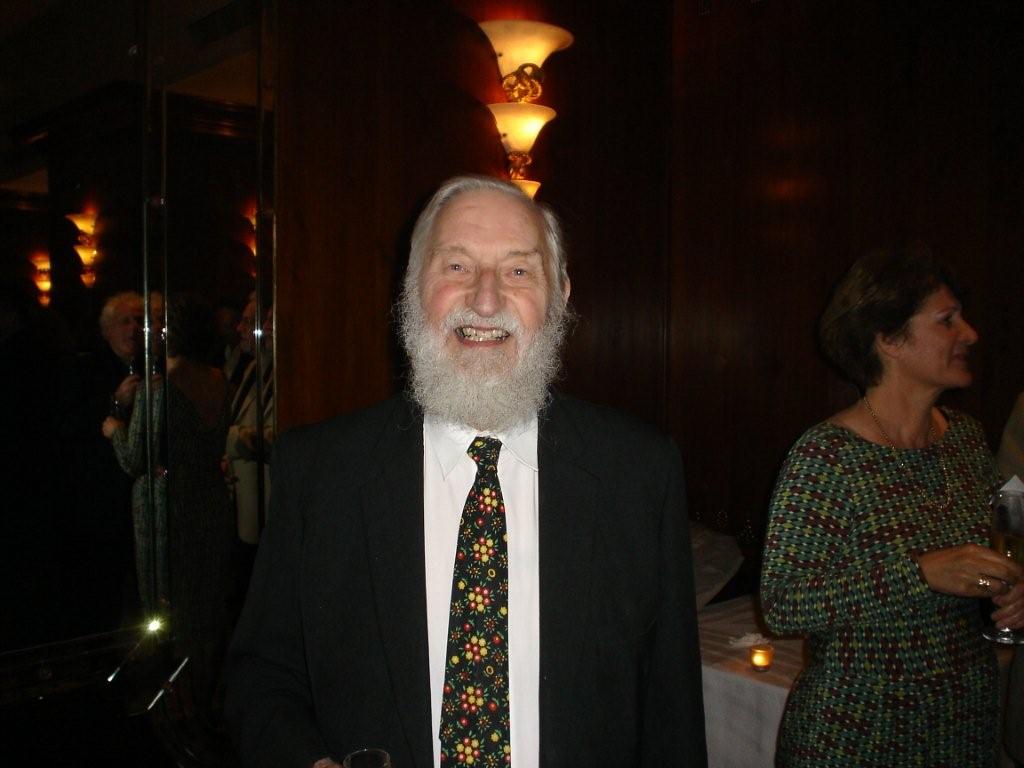
Harry in 2005. In the background, no doubt casing the joint, is crime writer Denise Danks. [Picture: Ali Karim]
To say Harry was warmly received in India
would be to stoop to a pun too far and certainly not one he would make
without
squirming with embarrassment, but it marked the start of a fruitful
partnership
and eventually brought Harry a walk-on cameo role in the 1988 film
version of The Perfect Murder,
produced by Ismail
Merchant. Harry goes to Bollywood?
Not a
bad progression for someone who had discovered India
in an Atlas in Notting Hill.
And India
served him well, earning him a second Gold Dagger for The Murder of the Maharajah
in 1980. Set in the Indian state of Bhopore in 1930, this was
Harry’s transposition
of the classic country-house
murder involving a fiendishly clever method of murder –
though he did get
letters this time from old India
hands claiming it was implausible!
With
its height of the Raj setting, this is often dismissed from the Ghote
Canon as
a ‘stand alone’ novel as,
in 1930,
Ganesh Ghote would hardly have been born. But I am not so sure. The
unsuspecting reader should read the last two paragraphs very
carefully...
There was a too-short-lived BBC
adaption of the Ghote stories and the books themselves continued
(although
Harry wrote many non-Ghote books) up to Breaking and Entering,
published in
2000, when it was announced to a startled world that the series would
end. It was a
decision reached on the advice of his
agent; though Ghote would not retire, be promoted (being kicked
upstairs is a
well-worn exit strategy), be killed or die of drink, he would just cease.
Harry, of course, would not retire, rather he would
concentrate on a new
series featuring policewoman Harriet Martens (a more fashionable
detective?) who
appeared in The Hard
Detective in the year Ghote seemed to disappear.
To
make the break a clean one and mark the end of an era, Harry consigned
all his
Ghote (and India) files to
a Royal
Borough of Kensington recycling
bin,
much to the annoyance of his long-suffering wife Sheila (Mitchell, the
actress).
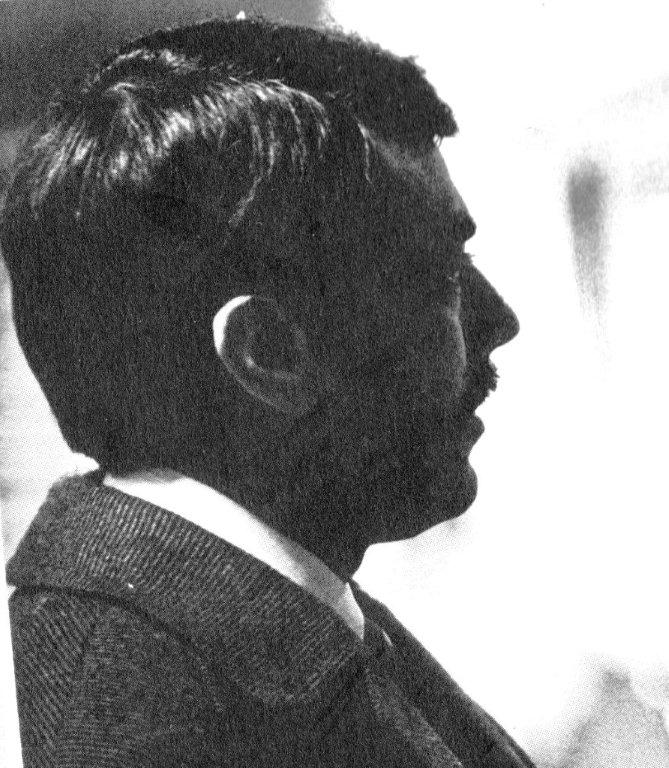
Zia
Mohyeddin as Inspector Ghote in a 1969 BBC
dramatisation.
But Ganesh Ghote was far too good a
character to go quietly into the night or be filed as ‘Not
Needed On Voyage’ in
the luggage compartment of a novelist’s imagination. After
seven Harriet
Martens books, which had their fans and which were expertly read on
audio books
by Sheila Mitchell, the call of the Ghote became too much to resist and
in
2008, he returned triumphantly, and cunningly, in a prequel
to his 1964 debut, in Inspector
Ghote’s First Case.
At exactly what point Harry began to
“roundly curse” himself for recycling all his Ghote
files is not known, “but
fortunately I still had the little notebooks I always keep when
writing”. He
also had a prime source of research at his fingertips: the two dozen
Inspector
Ghote books already published! There can be few writers who can have
had the
luxury of such a rich supply of source material. And so close to hand!
As a prequel set in 1964, the book also
qualified and was indeed shortlisted for the 2008 Ellis Peters Award
for
historical mysteries. The other short-listed authors must have hated
Harry.
Whereas they had had to spend months if not years researching London
during the Blitz, 12th century England,
post-war Argentina
or the Edwardian railway system, all Harry had to do was read his own
back
catalogue!
Which of course he did – the whole lot
– and
he must have quite liked them, for next month sees the publication of
another
‘historical’ Ghote, A Small Case for Inspector Ghote?
again set in the early 1960s.
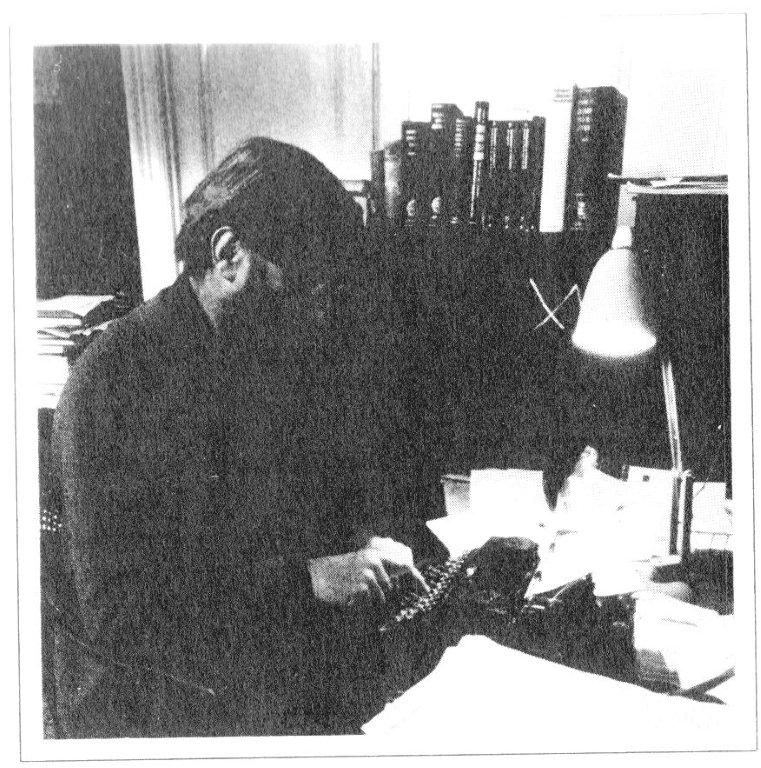
Harry bashing away on a faithful typewriter in the late 1970s.
To Harry it makes perfect sense to
concentrate on Ghote’s early career as to revive the
character in 2009 Mumbai
would mean a very old character and one not of a time with the Slumdog Millionaire city of Mumbai. Whatever, Harry certainly seems to be
enjoying Ghote’s return and there is a typical Keating
subtlety in the addition
of a question mark to the title of the new book. That, Harry confides,
makes
all the difference, for Inspector Ghote’s (latest)
‘small’ case turns out to be
anything but a small case in fact it threatens to be a career-ending
(almost
before it has begun) case.
But why does Ghote work as a
character? He is
surely the most
unassuming, most un-heroic hero in modern crime fiction. One might
almost say
(as I did) that Ghote’s most heroic quality is that he is
totally un-heroic and
is therefore continuously and professionally underestimated by his
foes. Why should Ghote work as a
character?
“I could answer...” says Harry, then
pauses
to add the caveat, “...but it would be a bad
answer.... because he’s me. Both he and I worry about what
people think of us.”
Ghote is no genius like Sherlock Holmes –
on whom Harry is a recognised authority – and no white knight
of the mean
streets like Philip Marlowe. He does, it is true, use Holmesian
deductive
methods but adds to them a crucial understanding of the complex local
culture.
In this it is almost a case of the detective as cultural anthropologist
and he
shares common ground with the detectives created by Tony Hillerman and
James
McClure, yet Ghote’s gently probing curiosity into how human
beings deal with
life puts him, I would suggest, in the same filing cabinet of fictional detectives which
contains Simenon’s
Inspector Maigret.
Harry is not displeased with the
suggestion and agrees that, like Maigret, Ghote isn’t so much
a real policeman
as a composite, mythical one and he is quite right when he points up
the
similarities between himself and his fictional hero. Both are extremely
polite,
diplomatic and gentle; so it wasn’t a
“bad” answer, for in a very good way,
Harry is Ghote.
It is something I had suspected long before
out meeting in Notting Hill in Harry’s study where, framed on
the wall, is the
first (and only) typewritten page of Jim’s
Adventure, Harry’s first foray into fiction
– crime fiction of course – at
the age of 8!
It may be the first time I have ever seen
this particular historic document, but it is not the first time I have
met
Harry; far from it. I think we first met round about 1990 at, if memory
serves,
a party in a fashionable London
hotel to mark the launch of a new Peter Lovesey novel. It was a notable
event
for me, for not only did I get to meet Harry, but also Julian Symons
and thus,
in the space one cocktail (or perhaps two) I had touched base with the
two main
critical analysts of the British (nay, global) crime fiction scene of
the second
half of the 20th century.
Since then, Harry has foolishly agreed to
appear on various panels and platforms with me in tow, at conventions
and
conferences. He was even my editor for the annual anthology of the
Crime
Writers’ Association, Crime
Waves 1 in 1991, though if
there was a Crime Waves 2 I was not
invited to contribute and we were asked to work together by The Times in 2000 to produced a
definitive list of the 100 Best Mysteries of the 20th
century, which
we did with a
surprising amount of
instant agreement, some intelligent debate, a small amount of
horse-trading and
absolutely no resorting to fisticuffs.
I can say in all honesty that there is no
better person to appear with in a public debate if the subject is crime
fiction, for apart from his years as crime critic for The
Times (1967-1983), his books on Sherlock Holmes and Agatha
Christie, his chairmanship of the CWA (1970-71) and his presidency of
the
Detection Club (1985-2000), he is a fan
as well as an acute observer of the genre and is widely and well read.
In 1978 in Crime
Writers, a book he
edited to accompany a BBC
series, he was required to do what all reviewers hate doing:
“crystal ball
gazing” to predict the stars of the future.
He very astutely highlighted a young crime writer called
Jacqueline
Wilson, who was to turn, soon after, away from the dark side and make
her name
and fortune in children’s literature, but at the time it was,
as they say, ‘a
good spot’.
So too was Harry’s prediction that the more
sensational and gruesome murder stories ‘where the motive for
murder was
publicity’ of a new and unknown American writer (in 1978
remember) were likely
to be simply the first of a considerable
stream. The book which prompted that comment was something
called Season
of the Machete by someone called James Patterson
and I think that a
pretty fair piece of fortune telling.
It almost tempts me into making a
prediction myself, that A
Small Case for Inspector Ghote?
will not be the last we hear from the small but perfectly formed
Sherriff of
Bombay.
Mike Ripley
|







